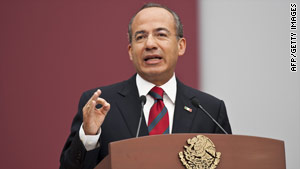Mexico's War on a New Drug: Avocados
How the Multibillion-dollar Avocado Industry is a Target for Mexican Cartels
/https://www.thestar.com/content/dam/thestar/news/world/2018/02/16/enjoy-your-guacamole-its-keeping-this-town-in-mexico-safe/mexico_avocados.jpg)
The entrance to Tancitaro, an avocado-growing hub in Michoacan.
Avocado Popularity
Avocados have exploded in popularity in the last few decades. Reasons for its popularity include its healthy dietary benfits. Avocados contain vitamins B, E, K, and folate. They also contain a source of monosaturated fat and are a great dietary choice for diabetics. Since 1970, the consumption of avocados in the US began increasing significantly from 2.23 pounds per capita in 2000 to 7.1 pounds per capita in 2016. In 2017, the United States imported $2.6 billion and exported approximately $28,500 in fresh avocados. Mexico supplied most of the avocados imported into the US in 2017.
Learn more about avocados 🥑
Total US avocado imports and domestic production.
The Mexican Drug War and the Avocado Boom
In 2006, President Felipe Calderon attempted to end crime and drug-related violence as he began his term in office. However, this was unsuccessful and eventually led to large cartels breaking up into smaller ones. The cartels began to broaden their portfolios such as agricultural goods, wood, timber, etc. As avocados continued to become more popular, the exports of Michoacan avocados boomed, as of 2019 — up to $2.4 billion. Michoacan is where most of the avocados imported into the US come from. An increasing number of Mexican cartels began joining the booming avocado business.

President Felipe Calderon delivering his fourth annual state-of-the-nation speech in Mexico City in 2010.
Corruption and Extortion
For some avocado growers, working with the cartels was beneficial for them in the beginning. Cartels asked for tax in exchange for the security that the state failed to provide. However, cartels grew predatory over time and now charge extortion fees with no services in exchange. Avocado pickers are threatened, an average of four truckloads of avocados are hijacked daily in Michoacan, and homicides in Michoacan were roughly 1,338 in 2018.
Communities Fighting Back
There is currently no law enforcement strategy in any state. Avocado producers in Michoacan began to take their own measures. This occurred after gang members burned down two major packing plants and kidnapped the 16 year old son of another prominent packer, several years ago. Producers from the municipality of Tancitaro, a major avocado hub, created their own army. They created their own civilian police force, built guard towers at the entrances to every town, and ensured one of theirs was on the ballot to take over the municipal government. These strategies are criticized as dangerous but the government has yet to interfere and its people feel safer.

CUSEPT, an armed avocado police force funded by avocado growers in Tancitaro, Michoacan.
Is Boycotting a Solution for Americans?
Sadly, it is much more complicated to stop the damage that cartels are provoking. Consuming avocados is not a direct contribution to the drug cartels. For one, not all avocados are from farms involved with cartels. Second, even if all Americans stopped consuming avocados, the cartels will look for their new business and bring damage elsewhere. Just like phones and computers, commodity chains will move back and forth between the legal and illegal. Avocados also represent a major source of income for Michoacan as it lifted many people out of poverty. Therefore, boycotting avocados would bring much more damage than solutions for hardworking families. Research in what measures would be more appropriate include the US allowing the importing of avocados from more areas other than Mexico and more efforts to stop drug dollars from being laundered in big banks.
Sources/Articles to Continue Learning
- Wbur
- The Los Angeles Times
- The New York Times